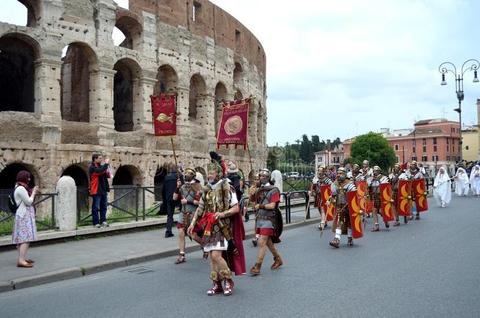Italy: Natale di Roma – the legends and traditions behind Rome’s birthday

Italy: Natale di Roma – the legends and traditions behind Rome’s birthday
Rome: Rome’s birthday, on 21 April, is known as Natale di Roma. This year the city will celebrate its 2,774th birthday.
Traditionally the Eternal City marks its birthday with historical re-enactments of ancient Roman rituals, costumed parades and gladiator fights, however this year, due to Italy’s covid-19 restrictions, the festivities move online.
The annual Natale di Roma celebration – known in ancient times as Dies Romana or Romaia – is based on the legendary founding of Rome by Romulus in 753 BC.
While there has always been some uncertainty over the year, the ancient Romans were certain of the date Rome was founded: 21 April.
Dating back to before the founding of Rome, the Palilia ceremony involved vestal virgins distributing straw and the ashes and blood of sacrificed animals before jumping over a bonfire three times.
The most commonly accepted date given for the foundation of Rome, 753 BC, comes from the Roman antiquarian Titus Pomponius Atticus, and was adopted by Roman scholar Marcus Terentius Varro.
On 21 April the Romans also held a trench-digging ritual, known as the tracciato del solco, which recalls the founding of ancient Roman towns when a trench or mundus was dug and offerings thrown into it to encourage the gods to watch over the inhabitants.
Another spectacular event that occurs in Rome on 21 April is the Dies Natalis phenomenon at the Pantheon (currently closed).
Each year on this date the midday sun enters the oculus of Rome’s Pantheon and creates a disk of light that centres perfectly on the entrance doorway.
At that exact time, the emperor would enter the temple, his body bathed in golden sunlight.
The historical re-enactments for Natale di Roma usually take place in the Circus Maximus, organised by the Gruppo Storico Romano which, for more than 20 years, has brought ancient Roman history to life.





